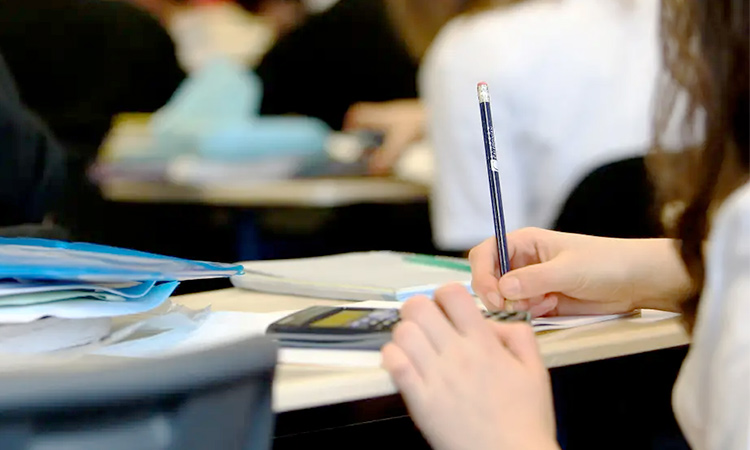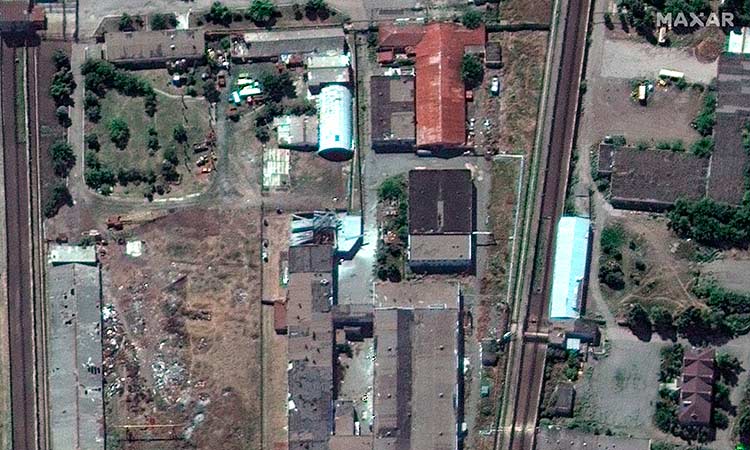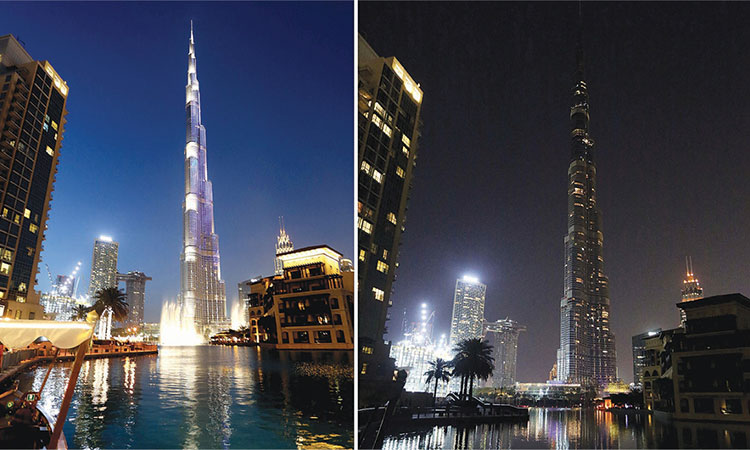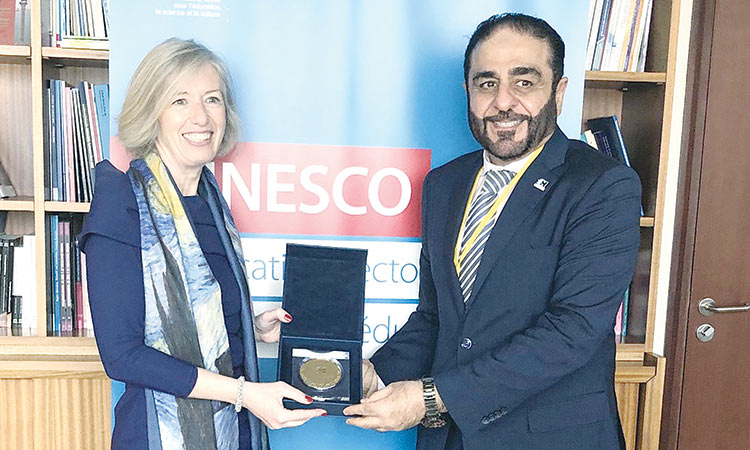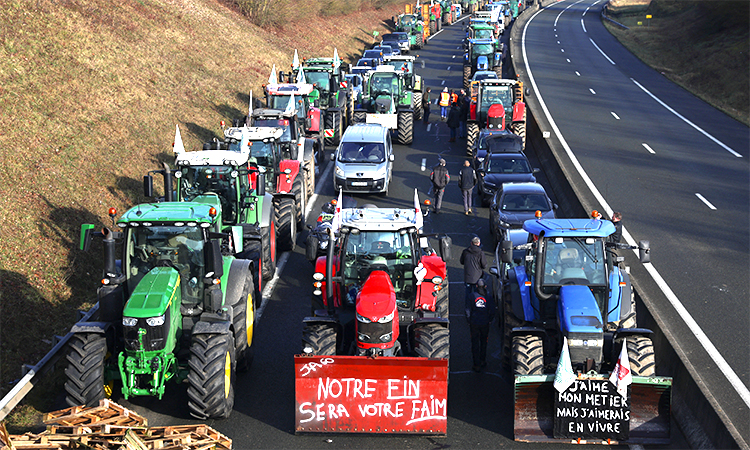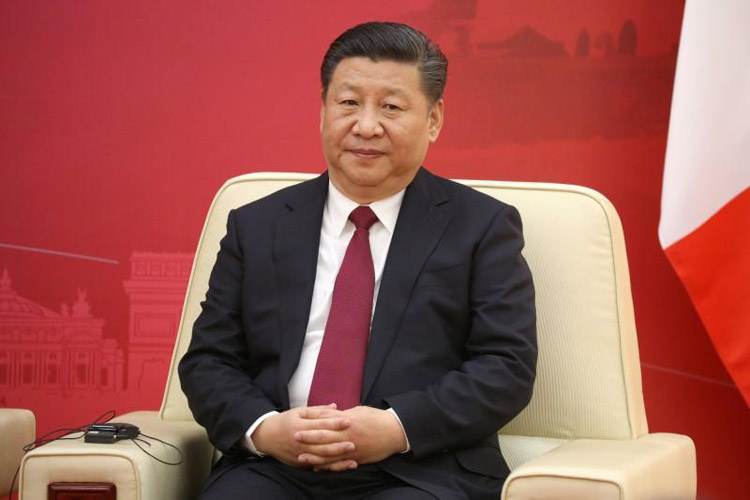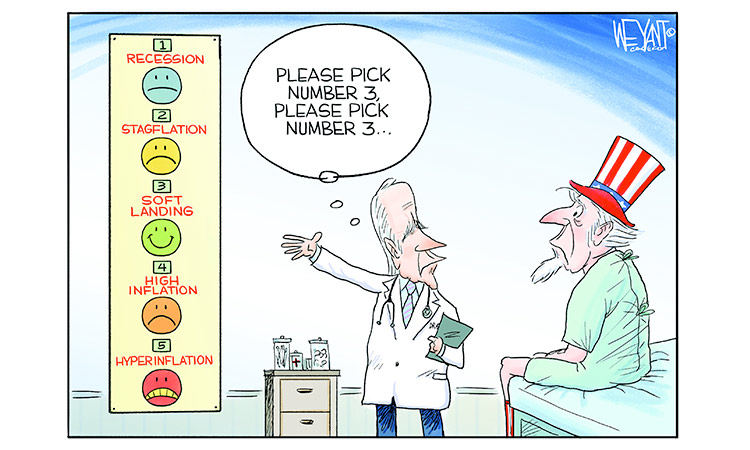Haiti police may not be prepared to take charge
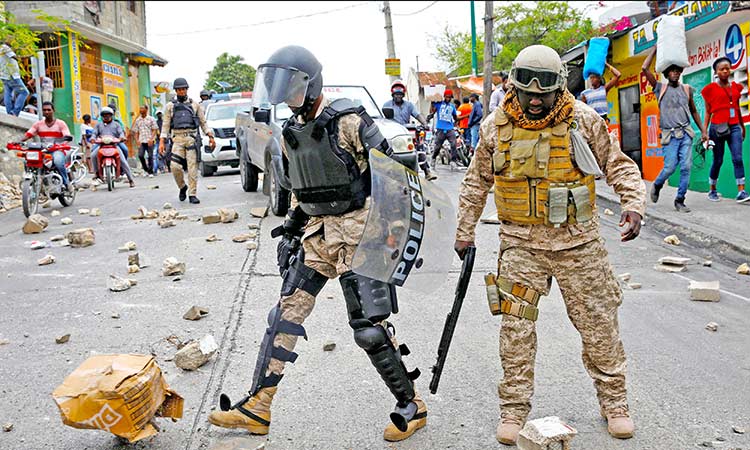
Haitian National Police officers clear a street during a march to protest against the Government in Port-au-Prince, Haiti on March 29, 2019. Reuters
By all accounts, Haiti›s fledgling national police is considered to be the United Nations› one success story in the country following 15 years of peacekeeping.
Barely 2,500 officers when the U.N. returned in 2004 after an armed revolt led to the president›s ouster, the force today is 15,051 officers working out of 376 police stations, with a presence in every major municipality.
But as the U.N. Security Council was preparing to be briefed on the situation in Haiti, ahead of its decision to finally end the country›s peacekeeping mission, one question remains: Can a volatile Haiti, which has seen more than 200 demonstrations since December — including 10 days of violence in February — finally take responsibility for its own security?
“The last events proved it,” said Haiti National Police Director Michel-Ange Gedeon, noting that the United Nations Mission for Justice Support in Haiti was only there in support of the police. “When you look at all of the videos, all that was happening, it was the police that was taking charge. It has changed, it has learned its lessons, it›s not going to repeat the same mistakes of the past.”
A 24-year veteran of the force and its first chief to come up through its ranks and not the Haitian army, Gedeon said everyone recognizes that the force today is much more professional. But he concedes there are weaknesses, from the need for more vehicles and firepower to the lack of logistics capabilities.
To illustrate his point, he again turned to February when, on the first day of what would be 10 days of violent civil unrest, officers in the city of Mirebalais found themselves under attack by protesters. The officers were out of tear gas and running low on ammunition.
“Do not shoot. Do not give into provocation,” Gedeon, who was two hours southwest in the capital, warned over police radio. With all of the city›s access roads blocked, Gedeon, 46, faced a decision. “I had to use a bunch of strategies to control the incident so I wouldn›t end up with police officers as victims,” he recalled. “We had police officers come from Hinche and they took longer to arrive in Mirebalais than the police officers who left from Port-au-Prince for Mirebalais.
“If I had the resources, like a helicopter, they would have arrived quickly,” he said.
In his report ahead of what›s expected to be a final Security Council vote this month to renew peacekeeping for a final six months, U.N. Secretary-General Antonio Guterres recommends that the Haiti mission end as scheduled on Oct. 15. It should be replaced, he said, with a small political mission, and its five police units should hand over all of its security responsibilities to the Haiti National Police.
Guterres acknowledged that the national police has increasingly become self-sufficient in providing security across Haiti. But he also noted that in the past few months as tensions rose on the streets, U.N. armoured vehicles and foreign police have had to provide backup.
During one demonstration in the Artibonite, for example, the protest became so violent that U.N. police were fired on and had to help local police remove barricades while treating injured officers. “The development of the HNP is an ongoing process, and improvements are made every time we have a chance to assess their capacity form real time experience, such as in the latest periods of unrest,” said Serge Therriault, the U.N. police commissioner.
There is one area that remains worrisome: human rights. Last month, 104 members of Congress sent a bipartisan letter to US Secretary of State Mike Pompeo expressing concerns that police used excessive force against protesters during the recent civil disturbances.
Those familiar with the letter say it stemmed from allegations about extrajudicial killings in the community of La Saline in November and the Haitian government›s overall lack of accountability. Human rights groups in Haiti have reported that as many as 71 individuals were killed, while women and girls were raped and houses looted.
The Haitian embassy in Washington has “categorically” denied that there have been human rights violations, labeling the accusations “both baseless and meritless.” The U.N., however, says human rights violations within the national police remain “a great concern.”
“Each reported case of human rights violation is one too many. Each one must be investigated to ensure proper measures are implemented to prevent any further occurrence while offenders are being dealt with,” said Therriault.
Gedeon said protecting human rights, and having the force remain apolitical, have been cornerstones of his tenure as chief. “One of my satisfactions is that despite all of these challenges, difficulties ... the police used just the necessary force,” he said, referring to the February protests, during which riot police worked 10 days nonstop. “They never used excessive force.”
That isn›t to say that of the 34 people the UN said were killed, a police officer couldn›t have been behind the fatal shot, despite Gedeon›s directive to police during the protests to only use rubber bullets, along with tear gas and batons.
“There are cases that we have our doubts about and we have the inspector general of the police investigating,” Gedeon said. Therriault said Gedeon, whose tenure comes up for renewal in August by Haiti›s president and Senate, has been “an essential partner” for the mission and “the excellent relationship we have been able to establish has contributed to the successes that the (national police) has been able to achieve.”
“Much remains to be done and continuity in approach and leadership are important to be able to manage the security challenges that Haiti will face in light of the persistent political tensions and the upcoming elections,” Thierrault said.
Gedeon hasn›t had it easy as chief in a country where police are more likely to die as victims of armed robberies while commuting on public buses than in the line of duty, and politicians have been accused of trying to undermine his authority and employing officers as armed security and gang emissaries.
And then there is the matter of lack of security. The country remains under a Level 4 travel warning from the US State Department, and recent high profile crimes have not helped. Last month, gunmen attacked a motorcade carrying Chile›s ambassador to Haiti, wounded two individuals and left three aid workers missing. Shortly after, a Portuguese national who lives in the US, Filipe Fernandes, was killed in the city of St. Marc after withdrawing the payroll for his employees at a local bank.
The national police “is capable of doing the job if the executive and parliament allow it to do its job and not politicize it the way they are trying to do today,” said Pierre Esperance, a human rights activist. “All of the big gangs we have had have, it›s the national police that has dismantled them by themselves. But while the police arrest, there are people in the system who then turn around and free them, so the police can›t always do their job.”
Esperance said the force remains fragile and is very much a work in progress. As for the United Nations, he said, its track record has not been impressive. The peacekeeping mission that was in charge of the country for much of the U.N.›s mandate “was a failure,” he said.
